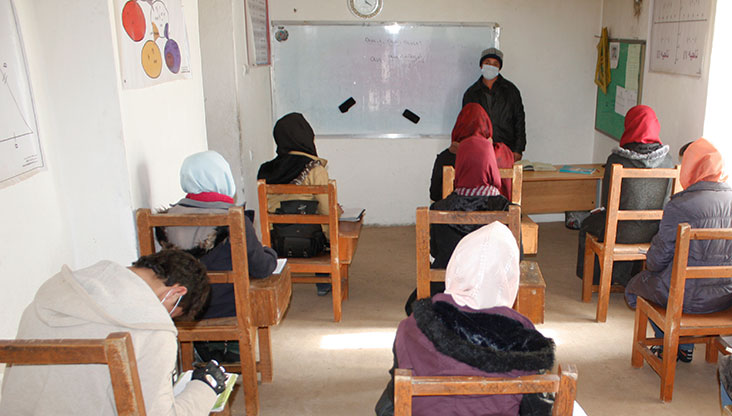Higher Education: Aga Khan Education Services Supports Students from Remote Areas of Afghanistan to Access University and College
Every year, thousands of high school students across Afghanistan undertake the Kankor examination to gain a place at a public university or college. However, not all students are successful...
Various factors are at play, ranging from a lack of awareness about the process, content knowledge gaps, the limited capacity in public universities and the shortage of qualified government school teachers to prepare students for the exam, especially in remote areas. To address these challenges Aga Khan Education Service, Afghanistan (AKES,A), has designed a comprehensive Kankor Preparation Programme for students in Baghlan and the remote areas of Badakhshan. AKES,A offers pre-primary programmes, supplementary education programmes for school-aged students, and continuing education programmes for adults, as well as assistance for the improvement of Afghanistan's education sector.
The Kankor Preparation Programme aims to provide students with the content knowledge and confidence to pass the exam and gain admittance into higher education. The programme consists of two parts. The first is the 18 month “General Package” on Science and Mathematics. The second is the 12 month “Kankor Coaching Course”, with two phases; tutorial in school subjects (Mathematics, Natural Science, Social Science, and Languages) and Kankor exam paper practice.
Wark and Worgond are remote villages of the Badakhshan province, where education facilities are very limited. In Worgond, where the nearest high school is nearly 20 km away, there had not been any female students that had graduated from high school until 2017 when an AKES Learning Centre was launched. In 2017 – and for the first time in Worgond’s history – 12 females graduated from high school and eight of them passed the Kankor exam and secured places at public universities. In 2017, AKES also established a Leaning Centre in Wark. Since 2017, AKES has supported 23 students in Worgond and 22 students in Wark to complete high school and pass the Kankor exam.
Abdul Wahid, an Economics student at Badakhshan University and previous AKES,A student in Wark received the highest marks in his district in the 2020 Kankor examination. Attributing his achievements to the support from AKES, Wahid commented: “We live in a district where education facilities are so limited and going to higher education is our greatest dream. AKES’ Programme has transformed our dreams into reality.”
Amina, a former AKES,A student studying Communications and Journalism at Balkh University, said: “The AKES programme has brought crucial changes in our lives...it encouraged me to accomplish my goals...we were given opportunities to actively participate; the teaching method was so different in comparison with public schools.”
Discussing the structure and future of the programme, RahmKhuda Karimi, AKES,A Supplementary Education Programme Manager, remarked: “Key features of the programme are: careful selection of the content (programme books plus Kankor exam paper practice) and providing seminars for students and parents. Through these seminars, key points such as how important the Kankor examination is, which subjects students should particularly focus on studying and how to manage time are discussed. The programme will be sustained and has been included as part of AKES,A’s long term strategic plan. In the coming years, we hope to reach many other remote areas of Badakhshan, Baghlan, Mazar, Kunduz, and Bamyan so that even more students can pursue their careers by accessing higher education.”
Photos (top to bottom):
– AKES Afghanistan has designed a comprehensive Kankor Preparation Programme for students in Baghlan and the remote areas of Badakhshan, where education facilities are very limited.
– AKES Afghanistan hopes to reach many other remote areas so that even more students can pursue their careers by accessing higher education.

